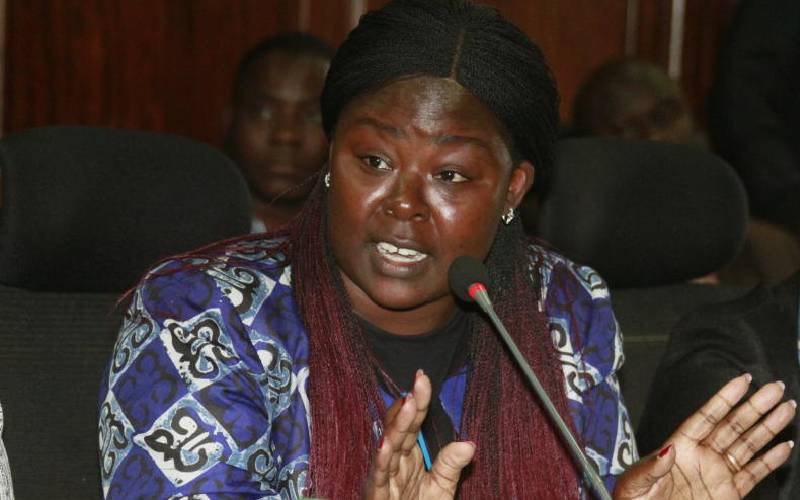×
The Standard e-Paper
Stay Informed, Even Offline

Transparency International Kenya Programmes Manager Sheila Masinde when she appeared before the Senate Ad-Hoc Committee on the Medical Leasing Equipment at Parliament on Friday 18/10/19.[Boniface Okendo,Standard]
The decision by International Monetary Fund (IMF) to approve a Sh255 billion loan to support Kenya’s pandemic response and economic reform programme, reduce debt vulnerabilities, address weaknesses in State-owned enterprises and strengthen the anti-corruption framework has sparked angry reactions from Kenyans.